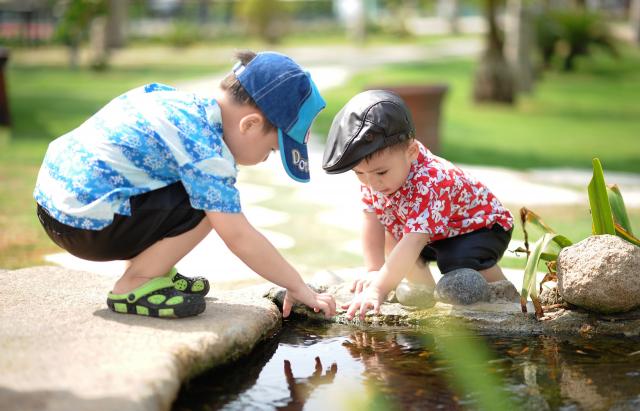One in eight parents believe play is mostly a waste of time.
According to the latest Royal Children’s Hospital National Child Health Poll, Australian families: How we play, most parents enjoy playing with their child.
But two thirds say they often find playing with their child hard or boring.
Dr Anthea Rhodes, paediatrician and poll director, said the findings showed that while parents recognised the importance of play, there were still some knowledge gaps.
“Play is a crucial part of children’s learning and development, with so many benefits for physical, mental and social health,” she said.
“However, our recent study shows that some parents believe play is fun but not essential and one in eight parents believe that play is mostly a waste of time.
“Most parents do enjoy playing with their child but we found many parents admit that they don’t always know how to play with their child and one half of parents are not confident that they could help their child to play.
“We also found that two in three parents sometimes find it hard or boring to play with their child,
with dads more likely to find it boring or hard than mums.”
The poll surveyed 2036 parents between September and October 2022, providing data on 3351 children aged between one month and 17 years.
Most parents (94 percent) recognise play is important for a child’s health including physical wellbeing and brain development.
Less than half (45 percent) of Australian children play outdoors most days, and 80 percent of parents would like their children to spend more time outdoors.
Time, safety concerns and weather are among the leading barriers to Australian children spending more time playing outdoors.
A third of parents believe play should always be supervised by an adult (38 per cent) and say it is not good for play to involve risk (32 per cent).
“Trying to navigate risk is an important part of play and can be beneficial for children’s learning,” Dr Rhodes said.
“It can sometimes be challenging to identify the difference between a healthy level of risk and a situation that is hazardous, when it comes to children’s play.
“It’s about allowing children and young people to have experiences that challenge and test them, without putting them in danger.
“That line will be different for every child.”
The survey explored differences in types of play, as parents reported on outdoor play, digital play and play away from the home.
The most common type of play was play with digital devices, with more than half of children playing inside on a digital device or screen most days of the week.
“Parents feel that play has changed over the years, with two-thirds saying play was better when they were growing up than it is for children today, and three-quarters believing it is good for children to be bored sometimes,” Dr Rhodes said.
“Many parents find their kids are ‘stuck to their screens’ but may not realise that using digital devices can also be a form of play.
“It’s really about how the technology is being used.
“Children can express their imagination, curiosity and creativity through screen-based play.”








